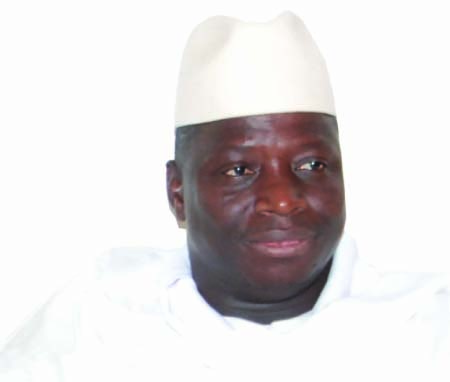
The President made this statement on Friday at the State Opening of the National Assembly for the 2015 legislative year.
In addressing the National Assembly in Banjul, President Jammeh said Gambian women are into vegetable gardening, hence instead of importing “vegetables that do not look like or taste like vegetables, the Gambians should patronize them and buy their vegetables rather than importing from outside”.
President Jammeh said as of March 1st 2015 vegetable importation into The Gambia would be banned.
This, he added, remains one of the main pillars of his government’s development agenda, and it would continue to promote measures to enhance women’s economic empowerment, effective and unfettered participation in national development, planning and implementation.
The Women’s Bureau would continue to provide both material and financial support to grassroots women to further strengthen their income-generating opportunities.
The construction of a multipurpose market complex to establish business links among women producers is also “a significant milestone in the economic empowerment process”, the President said.
“The Gambian woman has the same rights as the Gambian man to acquire land. The Gambian woman has share in land. As far as Gambia is concerned there is no ethnic group that restricts a Gambian woman from having her share of land.”
Free education
President Yahya Jammeh also said children attending public schools in The Gambia would not pay school and examination fees.
Consequently, President Jammeh said that starting from the academic year 2015/16, children attending public schools in The Gambia, could do so without paying school and examination fees, from Grade 1 to 12.
He said: “I informed this noble body that my Government would be providing grants to all public Lower Basic Schools with effect from September 2013 to ensure that no unauthorised levies are charged to students attending public lower Basic Schools.
“It is with great delight that I inform you that the payment of these grants has now been extended to all public Upper Basic Schools starting from September 2014 and that, with effect from September 2015, all public Senior Secondary Schools will also be receiving these grants.”
He added that his government’s commitment to the provision of quality tertiary and higher education has made significant progress evidenced by the establishment of three private universities and an increase in the number of both Gambian and foreign students in these institutions.
He said in pursuit of the government’s objective to upgrade the University of The Gambia, UTG, to a state-of-the-art university campus, funding is available to upgrade over 50 teaching assistants and lecturers to the status of Masters and PhD holders in the university, which will soon enable the university to produce graduates up to PhD level.
President Jammeh said the revitalization and decentralization of technical and vocational education and training (TVET) is a top priority in the country’s drive to empower the youthful population with skills, and to meet the needs for mechanization in areas such as agriculture.
He said his government has responded positively to “this noble proposition and the rural population will be benefiting this year” from the initiative.
He added that in support of the government’s effort, the National Assembly had passed the Tertiary and Higher Education Policy 2014-2023; the first of its kind, and soon the bill on the Tertiary and Higher Education will be forwarded to the Assembly for enactment into law.
He said another bill on the National Accreditation and Quality Assurance Authority is at the final stages and it will be laid before “this august body for enactment”.
The two bills will ensure quality in the delivery of tertiary and higher education in The Gambia.

